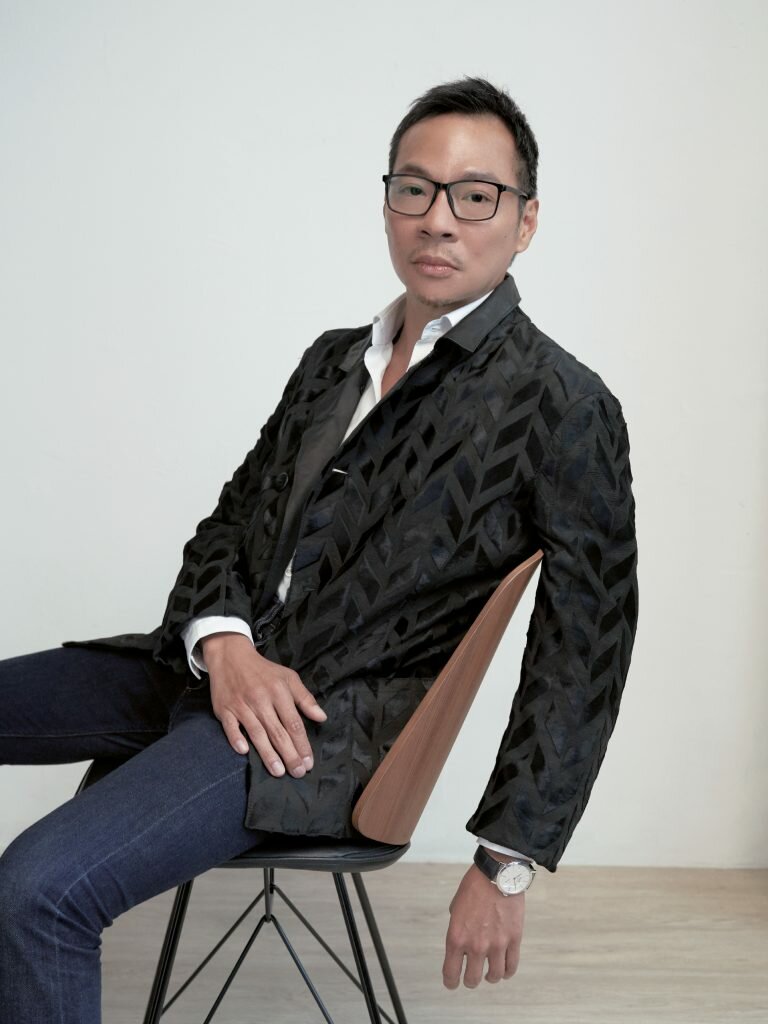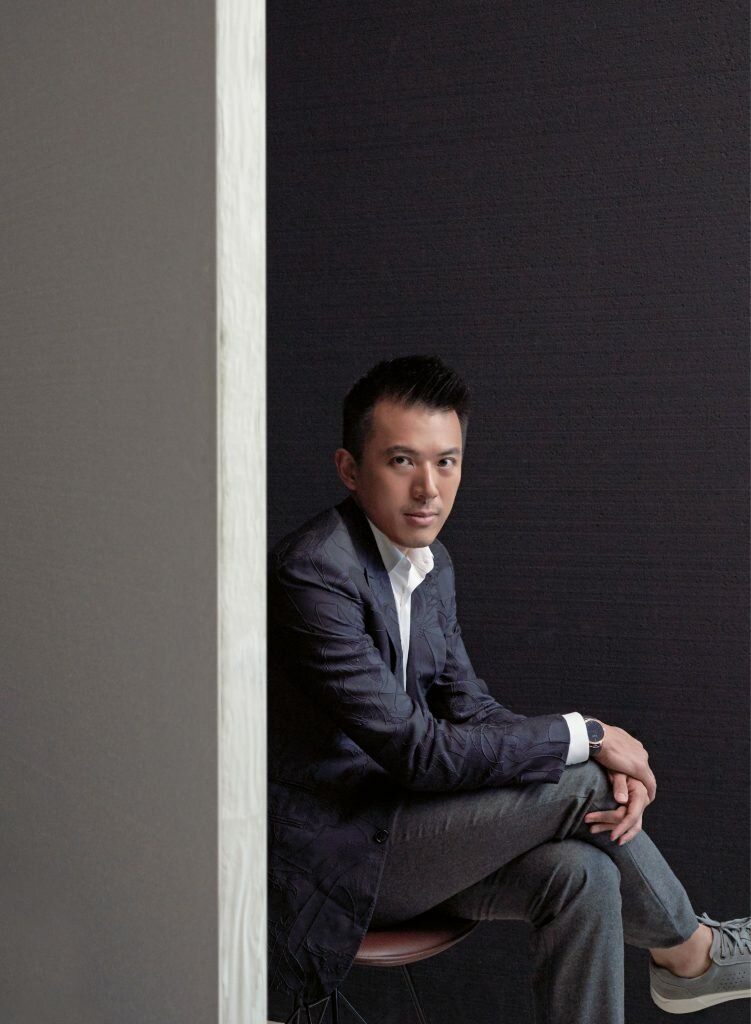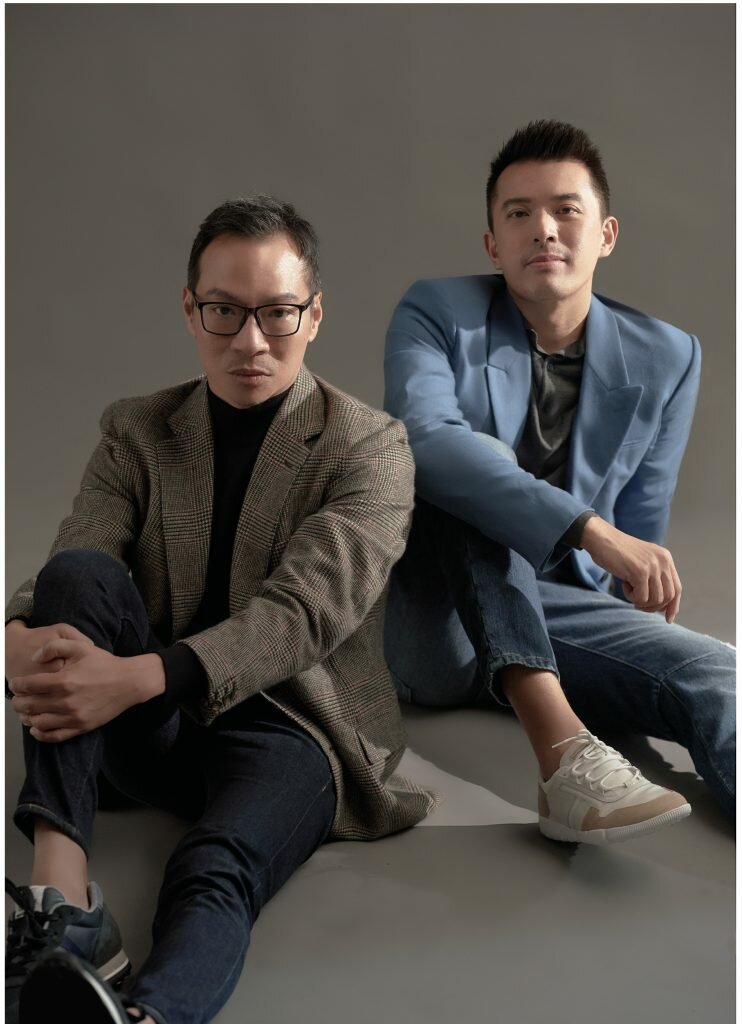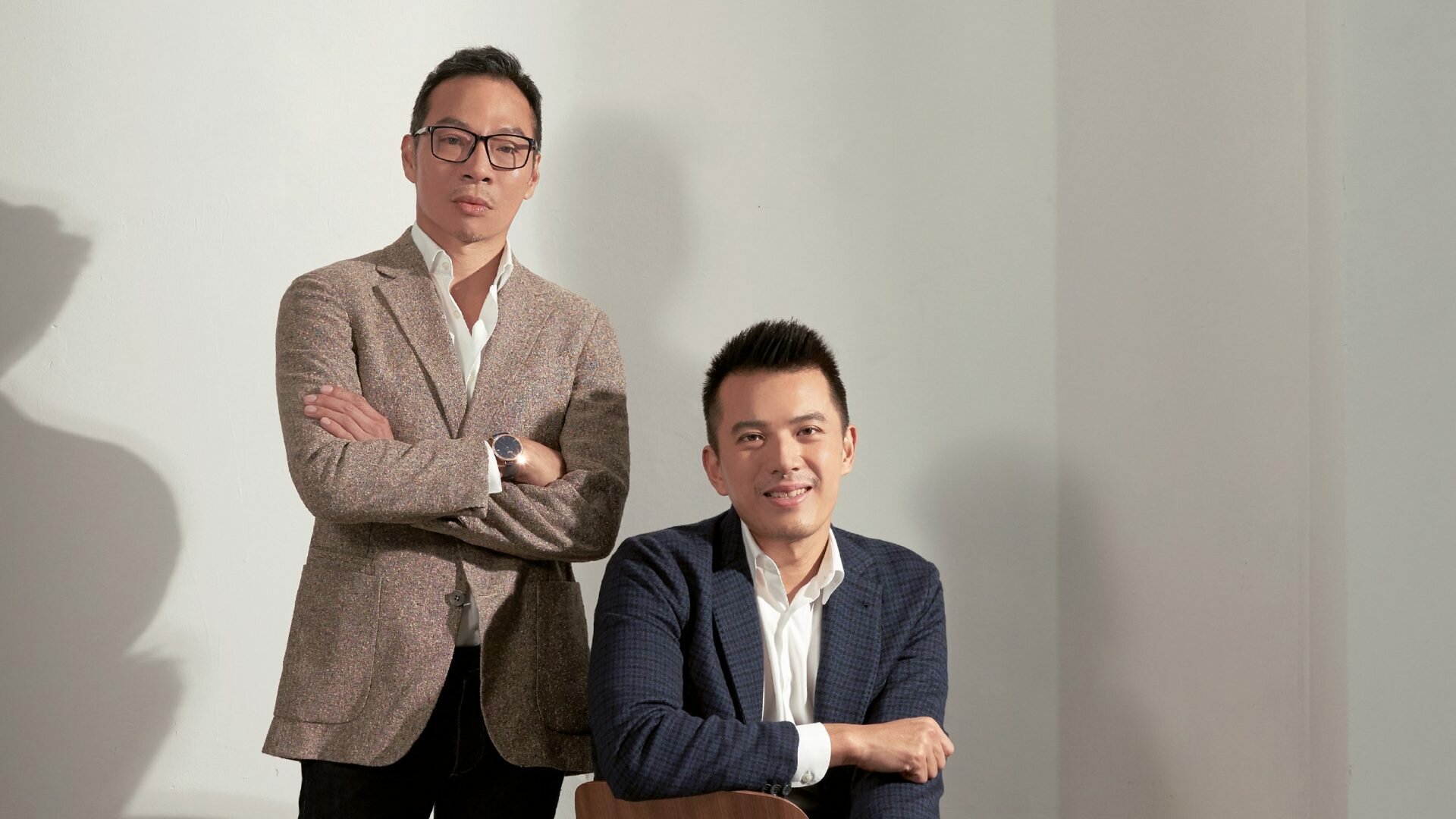If you had met cousins Nelson and Terence Loh at the turning point in their lucrative banking careers 20 years ago, you’d be tempted to write them off as just another pair of privileged young men with the dream of making a name for themselves. After all, the decision to leave their jobs was inspired by alcohol, cemented by a roulette spin in a Las Vegas casino, and made official with the founding of their investment vehicle — which they named after characters from Ocean’s Eleven.
But the joke’s on anyone who doubted the success of the Dorr Group (yes, after Danny Ocean and Rusty Ryan) because the private investment company now manages over US$4 billion ($5.4 billion) in a variety of industries while also being a key disruptor where it’s notoriously hard to disrupt — aesthetics and healthcare.
In Singapore, Dorr Group’s best-known business lies under the purview of Novena Global Lifecare, which the Lohs co-founded in 2010. The latter would quickly make headlines for offering laser facial treatments at a fraction of the market price, the first step in a move to make medical aesthetics and, eventually, predictive healthcare accessible to the masses. E-commerce, Nelson says, killed off numerous industries, and big names that no one imagined would fail, such as Kodak and Blockbuster, were rendered irrelevant as the internet revolutionised the way businesses worked. “We’re not very clever people so we just asked ourselves, what industries can’t easily be replaced by e-commerce?”
Obviously more gifted at enterprise than self-efficacy, they soon realised that healthcare was the answer. However, they lacked the funds to build a hospital, were not willing to play the big pharma game and weren’t even doctors themselves. Medical aesthetics, they decided, would be their way in. “When you start a business, you want to scale,” Nelson continues. “But if I wanted to open 100 outlets I wouldn’t be able to find, say, 100 oncologists or 100 orthopaedic surgeons. Since there is no specialised degree required to be an aesthetic practitioner, the business would be easier to replicate. And a laser is just a laser. It’s not like it needs to be made by Hermes or Tiffany.”

As Terence succinctly puts it: the physics is the same. “A lot of the time, entrepreneurs get carried away, where they want to be the very best at everything. But all you have to do is make something slightly better than everyone else to get that value proposition. Get that one service right, do it very well, and that’s good enough.”
The competitive pricing and business model they used to run the PPP Laser Clinic was a matter of simple math, which proved successful enough for them to open 30 outlets in three years and expand into Vietnam, Indonesia and China. But even the best-laid plans aren’t immune to unexpected problems. In 2015, the Lohs found themselves tangled in a lawsuit with the clinic chain’s founding doctor, who quit on them. This led to clinics getting shut down and clients with unfulfilled prepaid packages.
The Lohs won the case, but lost $24 million in the process and expansion plans had to be put on the back burner. Fortunately, the cousins weren’t fazed. “As bleak as it sounded, we had a plan and we planned to execute it. We spoke to the Ministry of Health and told them: ‘Hey, we still have all these packages our clients bought and we want to honour them. Will you let us, or do you want to let Asia’s largest aesthetics chain go bust? So here’s the situation, and here’s the solution — you choose’.” Terence recalls, adding by way of explanation: “People answer to pragmatism.”
And their answer to the crisis involved walking the grounds, meeting clients and answering questions, and renaming the clinics Novu. Within 18 months, they were up and running again. “You just have to be able to think through all the noise,” Terence says. “Thankfully, we had each other as sounding boards.”
That kind of trust is built upon the foundation of over 40 years of kinship. “We grew up together, we got in trouble together, we beat up our younger siblings together,” says Nelson. “But as with any relationship, it’s all about whether your interests and vision of the future align.” Respect plays a large part, too. It’s the reason Nelson claims they never have conflicts, only debates. “And we love them. The day we stop debating is the day we’ve given up.” And neither party will move on an idea the other doesn’t agree with.
“Terence is more passionate. He follows his heart more. If you want an inspiring speech, you go to him. I’m the numbers guy. I’m more rational and more skeptical. I will challenge every proposal you bring me, so I need convincing. That being said, our staff can come up with the craziest ideas and we will always be supportive.”

Thanks to this collaborative leadership, Novena Global Healthcare has established itself as one of Asia’s largest integrated medical healthcare and aesthetic groups, with over 250 locations globally. But aesthetics is just a small part of the vision. In 2018, Novena Global Lifecare signed a MOU between its bioscience arm, Novena Life Science, and Yozma Bioscience Holdings. The latter is a joint venture between Yozma Group, Israel’s premier venture capital firm, and Israel’s Weizmann Institute of Science, one of the world’s leading multidisciplinary basic research institutions in the natural and exact sciences.
“Dorr Group is the controlling shareholder for Novena, but our plan is to put everything together. A healthcare consumer can also be an F&B or media content consumer, so we want to converge these databases and see where we can find synergy,” Nelson explains. So far, they’ve found a fair few and are primed to keep up the disruption. The group recently co-founded a US$150-million Sino-Singapore Healthcare Fund with China’s Sinopharm Capital and investment platform Cedarlake Capital. This fund will primarily invest in companies involved in medical services, biomedical projects, mature drugs and precision medicine in Southeast Asia.
The group’s portfolio has also begun to include aesthetic dentistry, health screenings, luxury wellness clinics and new hospitals, including one built in partnership with Bvlgari Hotel Shanghai and La Prairie that’s scheduled to open this March. In July last year, Novena Global Lifecare completed a US$350-million merger with China’s Xingkeduo to gain access to the latter’s express haircut business and proprietary AI-based platform so as to create AI-driven med-tech based aesthetic and hairdressing solutions in China.
According to Nelson, people were skeptical. “‘Why buy hair salons?’ they would ask. Why not? Are you telling me that people who need to see a doctor don’t need to get their hair cut? They do and often so, which makes this a beautiful database because of its high frequency and CRM.”
Then again, neither of them are particularly good at listening to anything they don’t want to. “Nelson has ADHD and I just have problems with authority,” offers Terence helpfully. “Every year without fail, my school report card would say ‘disruptive’, and my dad used to complain about that. Now I can go up to him say, ‘See? Isn’t disruptiveness good?’” Nelson jumps in: “We never take ‘no’ for an answer.”
In light of Terence’s reflection, it’s more likely that Nelson simply never hears it and Terence reacts to “no” like a teenager would to rules. It’s a potent combination that seems to work, because they recently got former US President Barack Obama to say “yes”.
The serial entrepreneurs are regular advocates for giving back to society, and to mark the 10th anniversary of the group, launched the inaugural Education Benefit Gala last month — with Mr Obama giving the keynote speech. According to the Lohs, their vision naturally resonated with the former president’s own belief in education and affordable healthcare, so after months of professional wrangling, the group managed to convince him to take on the role as keynote speaker. The charity gala was expected to raise some $5 million for four local charities that support disadvantaged women and underprivileged children.
The cousins also set up The Loh Foundation last year, an organisation that provides donations, scholarships and sponsorships to communities here that need it. But don’t start muttering “tax break” under your breath just yet. “We don’t want people to just give money,” Nelson reveals. “We want people to be hands-on because money alone isn’t going to pull people out of the poverty trap. We need to take underprivileged kids out of the system, so for example, we’re building a boarding facility with the Dreams Academy for them to grow in the right environment.”
Employees in the group are also encouraged to get into the spirit of giving, and are given extra days off to do Corporate Social Responsibility activities. “Of course we’ve donated money, so why not try a different approach? I don’t know if it’s working but at least we’re getting people involved.”

Nelson wears wool jacket, from Bottega Veneta; Silk cashmere polo knit, from Loro Piana; Cotton jeans, from Brunello Cucinelli; Canvas and leather shoes, from Tod’s
And they practise what they preach. Terence set up a dedicated sports scholarship fund for underprivileged athletes. He is the sponsor and patron of the Singapore Muay Thai National Team, which has a back-to-school programme for means-tested youth. This sponsorship clearly came in handy — the team won its first medal (bronze) at the World Muay Thai Championships in Bangkok in July 2019. Novu was also the St Michael’s Soccer Association’s inaugural title sponsor that same year, and even has its own basketball team — Novu Blaze — that competes in leagues organised by the Basketball Association of Singapore.
The cousins, both professional Federation Internationale de l’Automobile (FIA) drivers, co-founded the Dorr McElrea Racing Team in 2012, and under Novu, sponsored Singaporean veteran racecar driver, Yuey Tan, during the 2018 Porsche Mobil 1 Supercup races in Europe.
It’s a natural inclination, given how the Lohs are themselves accomplished sportsmen. Nelson ranked top in Singapore (383th in the world) in his age group for the Ironman 70.3 in 2018, while Terence is a surfer and paddleboarder who has switched from Ironman races to Olympic-distance triathlons. Both graduates of Girton College (University of Cambridge), they are also setting up two annual scholarship awards for Singapore students to undertake undergraduate studies at the college from 2020.
Their charitable motivations are like their businesses: straightforward and frill-free. “The reasons are selfish,” Nelson admits. “We feel bad when things don’t go the way we envisage for others. Anyone who does charity is selfish because it pains us to see people suffering and it makes us feel better to give back. It’s human nature.”
So Nelson and Terence didn’t set out to save the world, but they’re not sitting around watching it burn either. Rather, they’re changing it (for the better) and that’s a lot more than many can say for themselves.
This story first appeared in the January/February 2020 issue of A Magazine.
